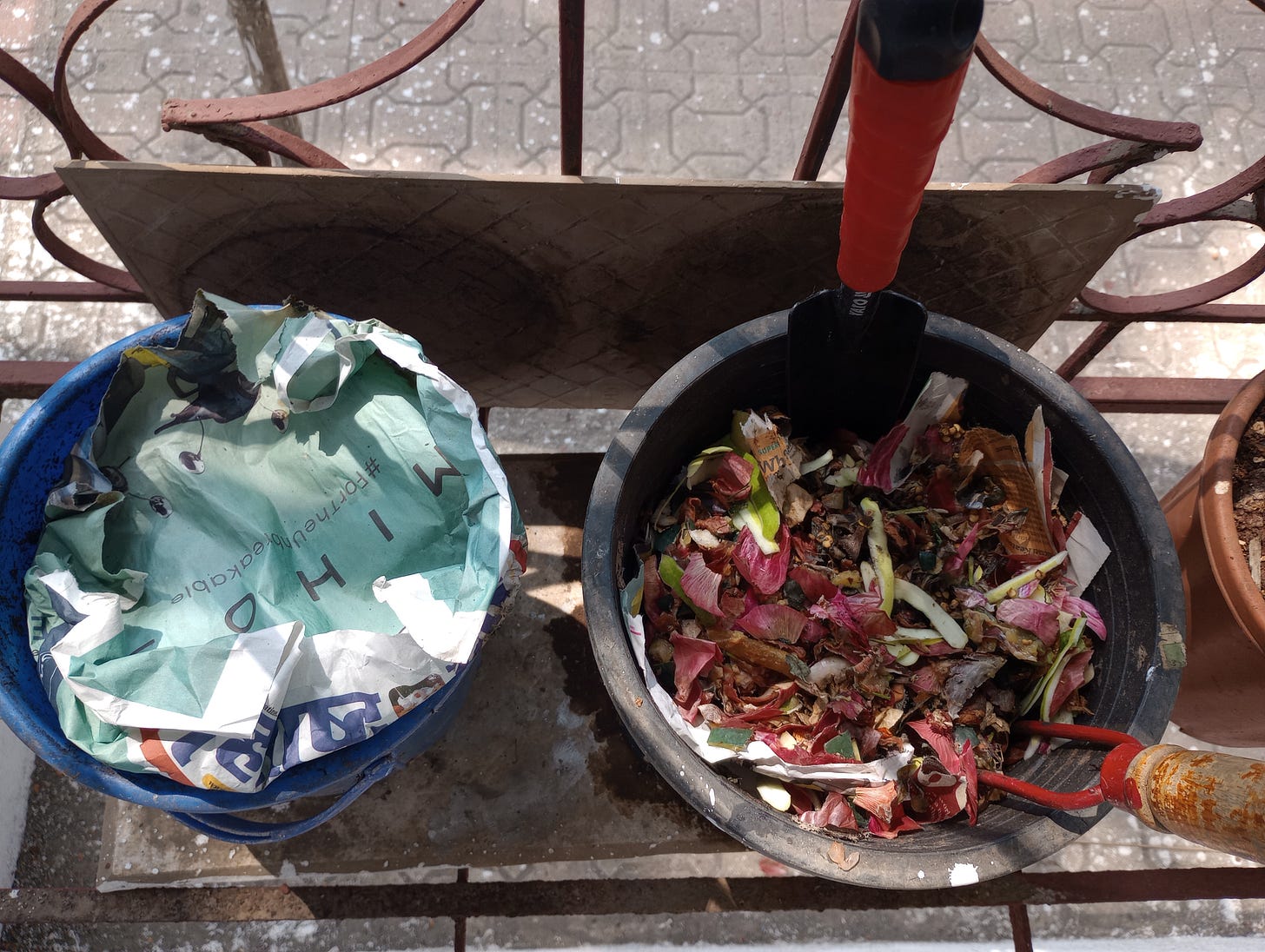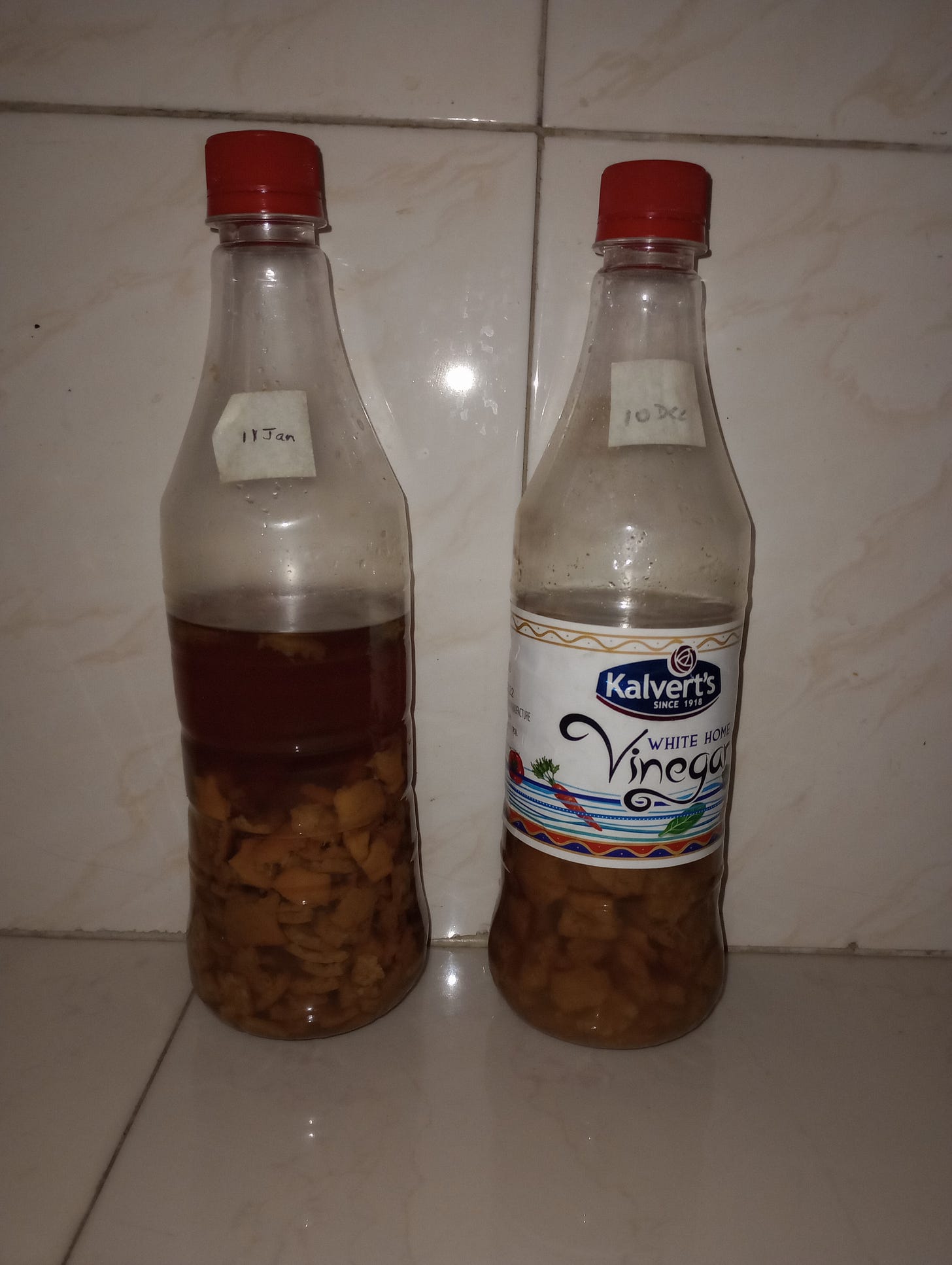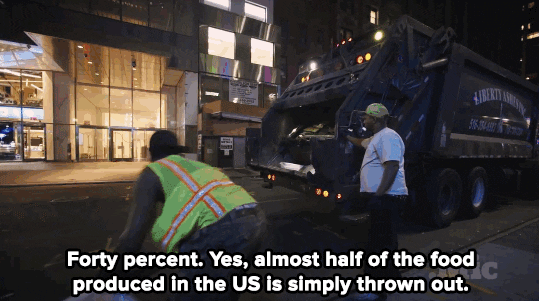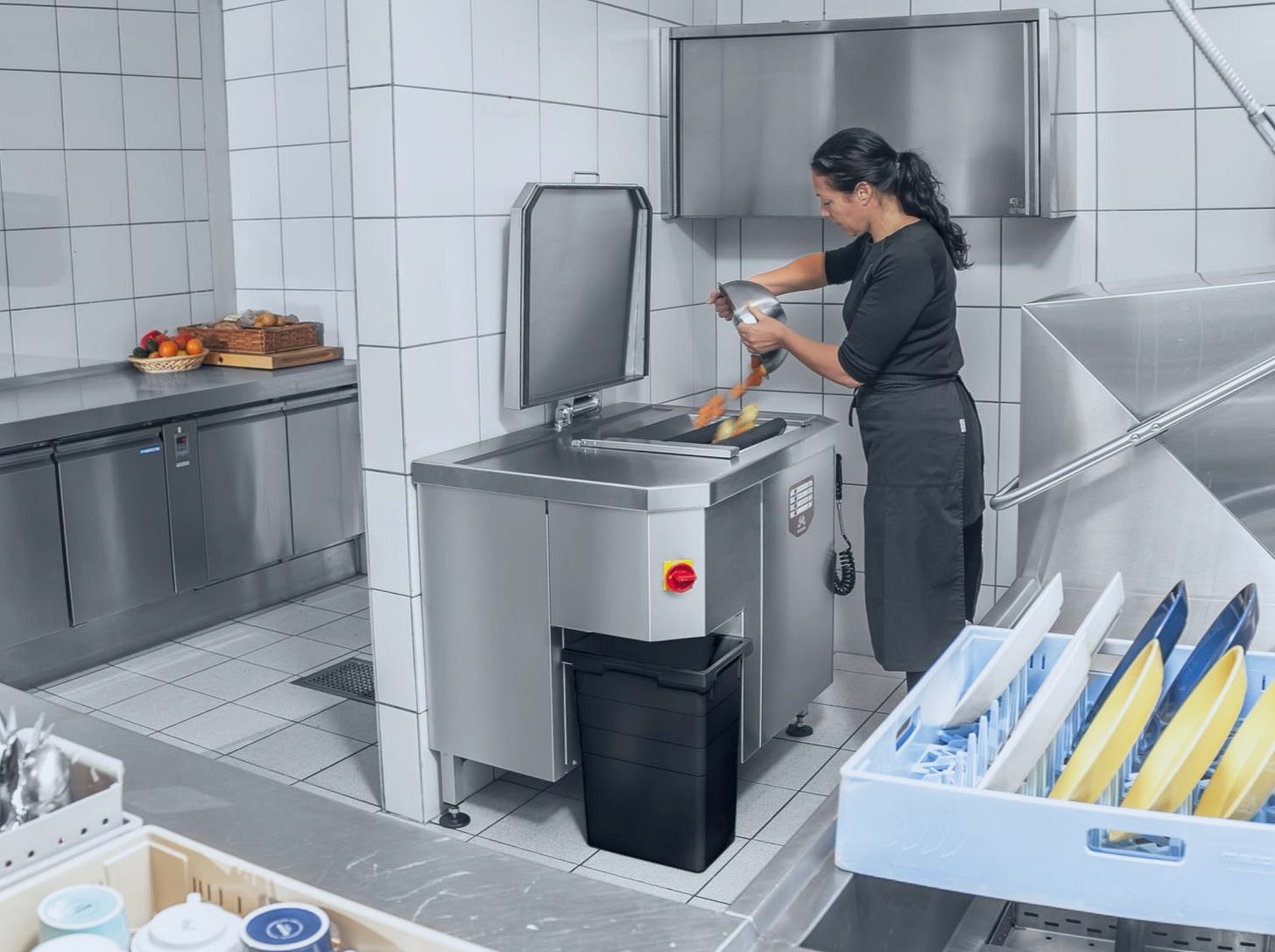An inspiring sustainability journey that started at home
All of us can learn something from this
Marilyn was contemplating the idea of setting up a composting in her small apartment in Mumbai, India.
She thought it would be a complex setup but when her sister shared a Youtube video with her that showed how it can be done, she asked herself-
“What’s stopping me?”
She started with an old plant pot and a plastic bucket. She drilled holes in them and started separating wet waste.
Wet waste is collected in a small container kept on the kitchen counter and transferred weekly into the window bucket.
We’ve been composting at home with this simple rudimentary set-up for more than 4 years now and the compost obtained is put in tree plots at work or given to anyone who wants it for free.
From then on, me and my older sister started identifying lifestyle changes for an eco-friendlier life.

The composting experiment gave Marilyn the confidence to make other lifestyle changes as well-
Replacing plastic water bottles with steel ones, and plastic boxes with glass/steel ones.
Switching to bamboo toothbrushes and earbuds
Carrying an egg box when buying eggs to avoid the transparent plastic bag it’s usually packed in.
Switching to a menstrual cup instead of plastic sanitary pads.
Moving to naked shampoo and soap bars
Replacing non-stick cookware with hard-anodized, ceramic and cast-iron cookware
Swapping out floor cleaning agents for less toxic homemade Bio-enzyme made from orange peels, jaggery and active dry yeast.

As a teacher, there’s a lot more that she is doing at her school. I wish I could cover everything here.
In case you would like to read her entire experience, here it is-
Moving onto this week’s content. So today, we have👇🏽
A startup that’s helping homeowners remove fossil fuels from their lives
Another startup that’s providing food waste recycling solutions to businesses
Some good news
How do I earn money?
🏠 Helping homeowners remove fossil fuels from their lives
Small Steps, Big Impact…We all know that climate change is a cause of concern. And we need policy changes and industry reforms to mitigate that. But there’s a lot that we can do personally as well. It might not create a huge dent but it would definitely play a significant part in bringing a systemic change.
Carbon cutting…Canopy wants to enable that for homeowners across the US by helping them remove fossil fuels from their daily lives. After asking a few questions from homeowners, it suggests climate upgrades to help them live better, save money, and cut carbon.
Homeowners can identify where their carbon emissions come from- cars, stoves, and heating systems.
Canopy then suggests to homeowners how to lower their carbon footprint and save in rebates and tax incentives.
It also suggests contractors in the area that can help with this transition.
Green Workplace…Canopy also supports companies, neighbourhoods and non-profits. It makes it easier for employers to help their employees decarbonize. It enables that by providing employers with climate-friendly technology for employees like EVs, e-bikes, renewable electricity, rooftop solar, home batteries, induction stoves, and heat pumps.
🥫 Providing food waste recycling solutions to businesses
Waste not…Food waste is one of the biggest contributors to global warming. It happens everywhere- homes, restaurants, schools, hotels, businesses, healthcare facilities. The majority of it ends up in landfills, creating methane, which is 80X more potent than CO2. Also, its nutrient value is lost. Some of it is composted but it requires 4-6 months to produce usable materials.
Dehydrate to Reduce…US-based Hungry Giant wants to escalate the decomposition of food waste via Bio-dehydrators. These machines remove the moisture from the food waste by heating it up to the steam point and then condensing and removing the water. The dried output is 80-90% reduced in volume. These machines can be placed in restaurants, cafeterias, and grocery stores and produce dried food scraps in 9-24 hours.
The dehydrated material is easier to store and less expensive to transport.
Dehydration also removes the odour, allowing food scraps to be stored for longer.
Restaurants, municipalities and other institutions can rent, lease or buy these Bio-dehydrators from Hungry Giant.
Fertile Food Scraps…The dehydrated material can be used as a fertilizer. It has high levels of nitrogen, phosphorus, and potassium- the macro-nutrients important to healthy plants and other organic matter essential for healthy soil.
😹 Some Good News
🦇 Bat-tub showers: Sprinkler mist to help bats battle Australian heat waves
🌊 Blowin' away energy costs: generator leveraging wave energy proves successful in trial
☀️ Charging Ahead: Chile aims for 70% renewable energy by 2030
Shoutout to Aakanksha for making this punny
💰 How do I earn money?
Some of you had asked me in the past few weeks how I make money doing all this- writing the newsletter and posting on LinkedIn.
Well, I don’t.🤭
I’ve actually started working as a freelance writer for sustainability/climate-focused startups.
I am grateful to some of the startups for trusting me with writing blogs, newsletters and white papers for them.🙏
If you or someone you know needs help with their long-form content, feel free to reply to this mail.
It would help me continue churning out this newsletter and LinkedIn content for you.
Thanks for reading today’s edition. If you have any thoughts or questions, feel free to write to me by replying to this email.

Have a great weekend and see you next week😊








